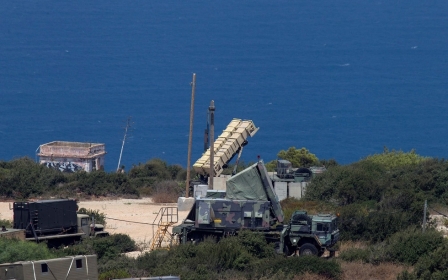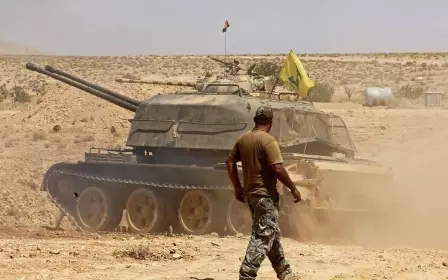Syria reports Israeli strikes near Damascus

Israeli warplanes struck a Syrian military position in a rural area near Damascus on Wednesday, triggering Syria's air defence system which destroyed most of the missiles, a Syrian army statement carried by state television said.
The statement said several missiles were launched by the Israeli jets from inside the territory of neighbouring Lebanon at 3:42am local time.
"This morning, Israeli warplanes fired several missiles from Lebanese airspace on one of our military positions in the Damascus countryside," said an army statement carried by state media.
"Our air defence systems blocked them and destroyed most of them.
"The general command of the armed forces holds Israel fully responsible for the dangerous consequences of its repeated, aggressive and uncalculated adventures," the army statement said.
In Jerusalem, an Israeli military spokeswoman said: "We do not respond to such reports."
The Syrian army said it had destroyed most of the Israeli missiles fired at its position, but did not give details of any damage or casualties.
The Syrian Observatory for Human Rights, a Britain-based war monitor, said the missiles targeted "positions of the Syrian army and its allies" in the region of Jamraya, west of Damascus, which was also hit in December.
Jamraya, which lies just over 10 kilometres northwest of Damascus, is home to several military positions and a branch of the Syrian Scientific Studies and Research Centre (SSRC).
The US has repeatedly imposed sanctions on the SSRC for its alleged role in chemical weapons production. France has also imposed sanctions on the agency.
An Israeli air strike hit the facility in May 2013 and another hit an SSRC branch in western Syria in September.
The Israeli air force has said it has struck arms convoys of the Syrian military and Lebanon's Hezbollah nearly 100 times since the war in Syria began more than six years ago.
Israel regards the Iran-backed Hezbollah, which is fighting alongside the forces of Syrian President Bashar al-Assad, as the biggest threat it faces on its borders.
It has grown deeply alarmed by Iran's expanding clout during the conflict, and has warned it would act against any threat from Tehran.
Middle East Eye propose une couverture et une analyse indépendantes et incomparables du Moyen-Orient, de l’Afrique du Nord et d’autres régions du monde. Pour en savoir plus sur la reprise de ce contenu et les frais qui s’appliquent, veuillez remplir ce formulaire [en anglais]. Pour en savoir plus sur MEE, cliquez ici [en anglais].




